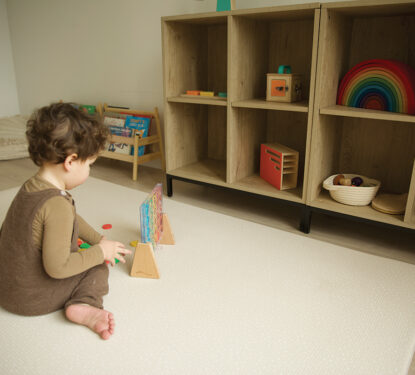
The term “conscious parent” was coined by Dr. Shefali Tsabary to describe an approach to parenting that prioritises the child’s development as an individual. The theory is that parents inadvertently pass on their psychological and emotional pain through subconscious patterns, and that by becoming mindful of your own thought patterns and biases, you can allow children to develop on their own terms. Here’s how you can embrace this increasingly popular parenting philosophy.
Recognise your child as an individual
Resist the urge to push your child into subjects or hobbies that you want them to do, and instead support their interests – even if you don’t understand them.
Adjust your expectations
Try not to hold your children to the same standard as an adult. They’re kids, which means that they can be messy, emotional, forgetful and impulsive. Let go of your frustration and channel some empathy (and inner peace!) instead.
Set boundaries
Supporting your child’s individuality doesn’t mean letting them run riot! Set expectations and consistently reinforce them whenever your kids slip up. Give them responsibilities and encourage them to do things for themselves.
Speak respectfully
Children have their own thoughts and feelings, and it’s important to speak to them how you would like to be spoken to. Try to check any impatience, sarcasm or teasing, and instead make your child feel heard and respected.
Embrace failure
Conscious parenting also means sitting on your hands and allowing your child to make their own mistakes. But it’s OK! Children need to know that failure is not something to be afraid of, and in every failure there’s an opportunity to learn.
Model the behaviour you want to see
Children are perceptive, so avoid passing on your own issues by minding how you behave and talk. You won’t be able to get your kids to put their phones down, eat their vegetables and play outdoors if you spend all your spare time eating cookies from the couch! The same goes for negative self-talk – we want our children to love and appreciate their bodies, so make sure you’re practicing self-love too – resist the urge to talk negatively about yourself.
Take a deep breath
If you feel yourself about to lose it, remember to respond, not react. Take a deep breath and try to model the kind of reaction you’d want your child to have in response to frustration.
Read more Family articles here.







